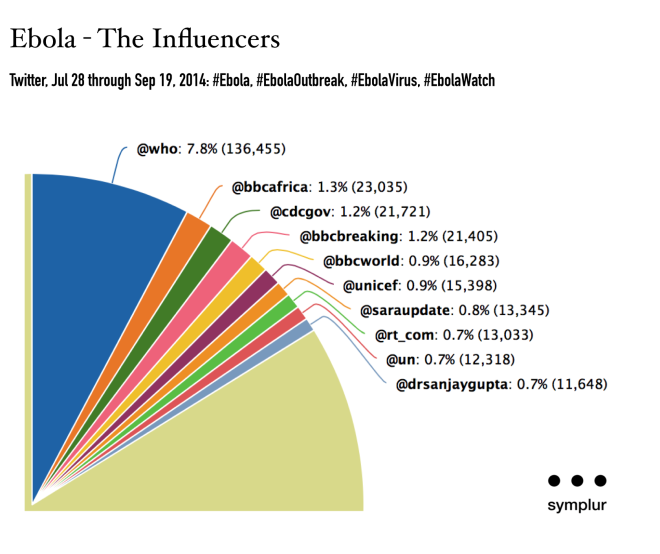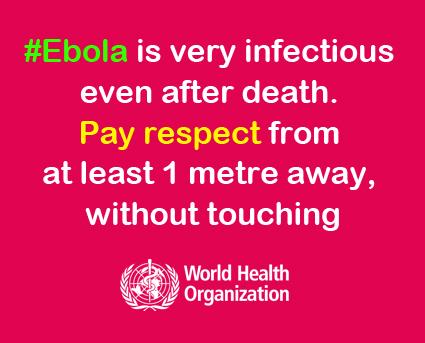The need for social listening is made all the more relevant now that Ebola has reached our shores.
So, let's look at the five reasons why agencies need to monitor social media in the context of this deadly outbreak.
Finding out is key ... people will share their fears and how they intend to either abide by or disregard the advice/orders of public health officials ... This tweet might be relevant:
ALERT: Children living in the apartment with Infected Ebola Patient Thomas Duncan broke #quarantine and attended school today.
 The second part of the first reason is also very important ... finding "social allies" ... reputable sources that will either reinforce/validate your own messaging or amplify it:
The second part of the first reason is also very important ... finding "social allies" ... reputable sources that will either reinforce/validate your own messaging or amplify it: The second reason why you should conduct a social listening operation is detecting rumours and false information that could put public health/safety at risk. And we know for a fact that fear is rampant in Western Africa and now in Texas,
It's hard to counter an online rumour if you're not even listening ...
That's something the CDC in the US is very good at ...In fact, they have been a sterling example of what to do right in communicating strong info and fighting rumors at the same time.
The third reason why you need to listen to social networks during an emergency or crisis is to detect calls for help/assistance that will come through these channels. We saw that during Hurricane Sandy and many other disasters ...people will use mobile devices and social networks to call for help ...
How are you prepared to detect these calls and route them through the appropriate people/organizations?
The fourth reason any organization needs to conduct a sound social listening operation is to identify early reputational threats that could jeopardize your ability to respond to the ongoing situation. There are influential people out there who may not share your views and be very active in undermining your efforts ... either on purpose or just because they are misinformed (Say Hello Donald Trump ) ...
Finally, the fifth and final reason to monitor social networks is to enhance your situational awareness ... social data offers a lot to help better your comprehension of how an incident evolves and the consequences that follow.
Data that combines social and mobile (social convergence) can offer much in the comprehension of population movement during outbreaks for example:
It's not all roses though ... some doubt remain about validating "big data" and finding the best way to present the info in such a manner that it supports efficient decision making. However, in place like Africa where mobile prevails ... the available info can be very valuable and bring the seriousness of the problem/outbreak home in a very real way.









No comments:
Post a Comment